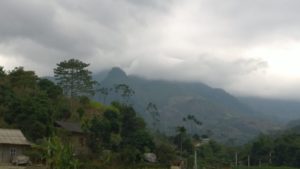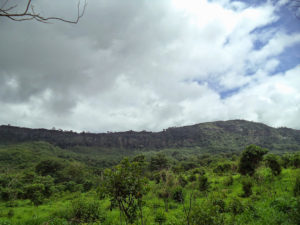
The world is facing a growing water crisis: already, 40 percent of the world’s population are affected by water scarcity, and climate change threatens to increase the frequency of both floods and droughts in vulnerable areas around the world.
A new report released recently at the United Nations High-Level Political Forum on Sustainable Development in New York suggests that successfully managing the world’s forests will be key to mitigating these risks and ensuring safe and sustainable water supplies for all.
Forest and Water on a Changing Planet: Vulnerability, Adaptation and Governance Opportunities presents a comprehensive global assessment of available scientific information about the interactions between forests and water, and was prepared by the Global Forest Expert Panel (GFEP) on Forests and Water, an initiative of the Collaborative Partnership on Forests led by the International Union of Forest Research Organizations (IUFRO).
Read more: FTA at GLF: From rainfall recycling to landscape restoration
“In the assessment, we focused on the following key questions: Do forests matter? Who is responsible and what should be done? How can progress be made and measured?” said panel cochair and Meine van Noordwijk of the World Agroforestry Centre (ICRAF) – a member of IUFRO – and Wageningen University, Netherlands. Van Noordwijk is also a former research leader at the CGIAR Research Program on Forests, Trees and Agroforestry (FTA)
The role of forests in the water cycle is at least as important as their role in the carbon cycle in the face of climate change. In addition to being the lungs of the planet, they also act as kidneys.
Xu Jianchu of ICRAF noted that, “while public attention has tended to focus on forests’ potential as carbon sinks, from a local perspective water is often a greater priority.”
Read more: Bridging research and development to generate science and solutions

Carbon-centered forestation strategies could have significant consequences on water resources; in some cases, efforts to increase carbon storage using fast-growing trees have had a negative impact on local water supplies.
According to Xu, who contributed to several chapters in the report, looking at the climate-forests-water-people system as a whole could help formulate policies that address both local priorities and global targets such as the United Nations Sustainable Development Goals.
For example, water-sensitive land management policies in the Hindu Kush and Himalayas have successfully revived natural springs which are a critical source of water for local communities.
As noted by panel co-chair Irena Creed of the University of Saskatchewan, Canada, “natural forests, in particular, contribute to sustainable water supplies for people in the face of growing risks. And it is also possible to actively manage forests for water resilience.”
The report also calls for nuance in both scientific assessments of forests and policy-making. Rather than simply classifying land cover as ‘forest’ or ‘non-forest’, for example, the publication emphasizes the need to pay attention to forest quality and how trees are arranged within a watershed.
Read more: Trees, water and climate: Cool scientific insights, hot implications for research and policy
In Vietnam’s Huong River Basin, the intensification of traditional swidden-fallow systems from 1989 to 2008 was not an explicit change in land use but it still had major consequences for water flows. Over that same period of time, forests in the headwaters of the basin recovered and expanded, which would ordinarily be expected to mitigate the risk of floods. Yet intensification of the swidden systems overwhelmed these effects and in fact exacerbated flooding.
The report concludes by identifying a clear policy gap in climate-forest-water relations and calls for a series of regional or continental studies to complement and extend the current global assessment.
Filling this gap will not be a simple process, and the authors highlight the fact that any process for managing the trade-offs inherent in forest management must fully consider the wellbeing of local, indigenous and other vulnerable communities. To that end, social and environmental justice must be integrated into climate-forest-water policies, and stronger participatory approaches are needed to ensure that policy goals are sustainable and equitable.
By Andrew Stevenson, originally published at ICRAF’s Agroforestry World.
The IUFRO-led Global Forest Expert Panel initiative of the Collaborative Partnership on Forests established the Expert Panel on Forests and Water to provide policy makers with a stronger scientific basis for their decisions and to specifically inform international policy processes and discussions on the 2030 Agenda for Sustainable Development and the related Sustainable Development Goals.
The International Union of Forest Research Organizations (IUFRO) is the only world-wide organization devoted to forest research and related sciences. Its members are research institutions, universities and individual scientists as well as decision-making authorities and others with a focus on forests and trees.











